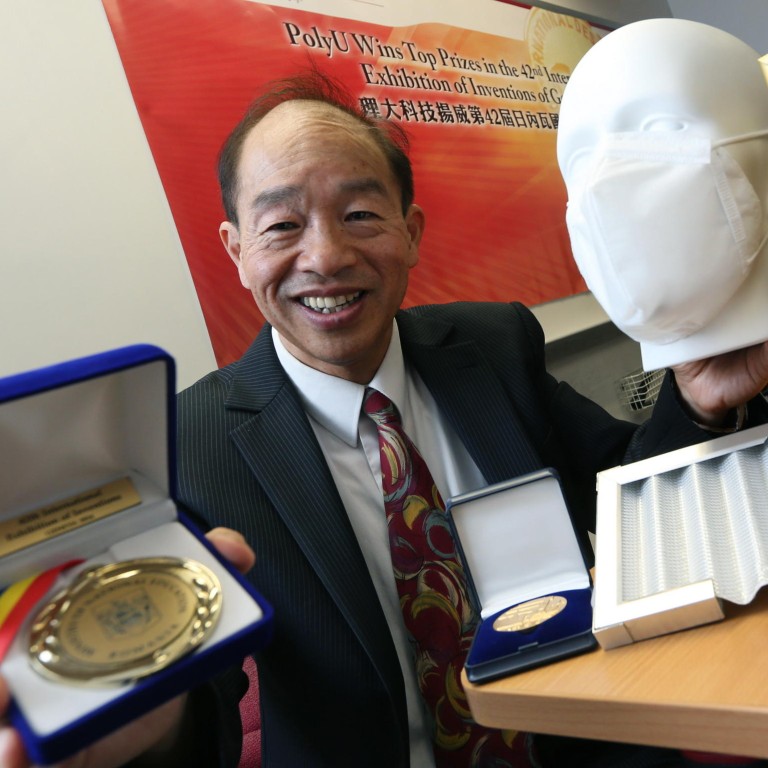
Inventor's award-winning face-mask filter will help you breathe easy
Polytechnic University's Professor Wallace Leung Woon-fong has invented the first multilayer nanofibre filter to purify the air.
Hong Kong's grey, polluted skies may be a health hazard, but for one inventor, they've been an inspiration.
Polytechnic University's Professor Wallace Leung Woon-fong has invented the first multilayer nanofibre filter to purify the air.
"I was in the United States for more than 30 years, seeing blue skies every day. But after I returned to Hong Kong, I could see only grey skies," said Leung, the university's chair professor of innovative products and technologies. "I asked myself: 'What can I do to help Hongkongers?"
So Leung set out to improve the quality of air that people in Hong Kong breathe.
His filter is five times more effective than a conventional surgical mask when it comes to filtering ultra small pollutants of less than 300 nanometres, such as diesel particulates, laser-printer particles, viruses and small bacteria that are easily inhaled.
The filter's multilayer design also allows mask wearers to breathe more comfortably.
That's not all. The filter is capable of breaking down gaseous pollutants, such as volatile organic compounds, to harmless substances under daylight.
It can also kill bacteria when it comes into contact with moisture, allowing it to be reused even when stained with sweat.
Apart from its use on facial masks, the invention can also be used as a plane cabin filter or as an indoor ventilation filter.
Leung said he spent nine years and several million Hong Kong dollars to develop his filter.
All that has paid off. Last month, his creation won a special award and a gold medal at the International Exhibition of Inventions of Geneva.
Another invention that won the same honours is a food-grade, plant-based capsule coating created by assistant professors Wong Ka-hing and Wang Yi of the university's applied biology and chemical technology department.
"Nowadays, we take capsules not only when we're sick … Many people now take health-care products such as vitamins almost on a daily basis," Wong said. "But some capsules have been proven harmful to humans, and they pose safety and health concerns."
The capsule coatings are made from zein, a protein derived from corn, and pectin, from citrus fruits. Coatings are typically made with synthetic polymers or animal-derived gelatine.
In all, seven Polytechnic University inventions won a total of 11 awards at the event.
